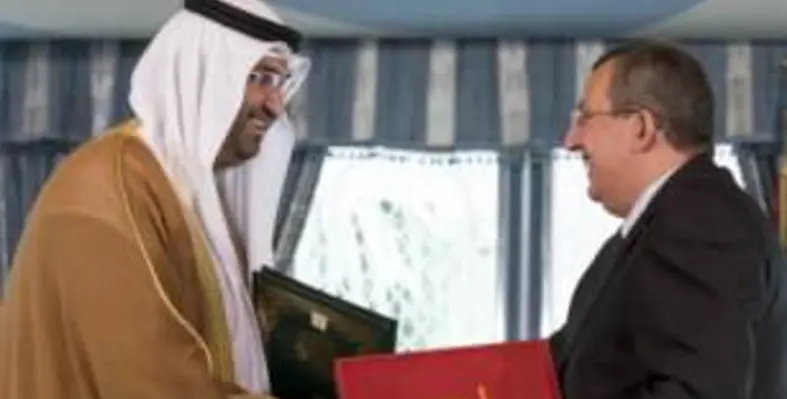Abu Dhabi?s energy company Masdar and Morocco?s electricity utility Office National de l?Electricit? et de l?Eau Potable (ONEE) have entered a partnership to provide 17,670 solar home systems in Morocco
Sultan Ahmad Al Jaber, chairman of Masdar and Ali Fassi-Fihri, director general of ONEE, signed the agreement in Casablanca, Morocco.
The solar home systems will be supplied to 940 villages in Morocco, and when completed, are expected to provide 99 per cent of rural Morocco with access to energy, said ONEE officials. Each system consists of 290-watt solar panels, which charge two batteries with sufficient storage capacity for three days. Masdar and ONEE will work to design, supply, install and commission the systems. In addition, the Abu Dhabi-based company will provide maintenance and operational training for two years, following which ONEE will take over.
Sultan Ahmad Al Jaber, chairman of Masdar, who is also the minister of state in the UAE, said, ?The UAE has long-standing bilateral ties with Morocco, and the project reflects our commitment to work together to enhance economic and social opportunity. We look forward to working with our strategic partners to complete this project and demonstrate the positive impact of improving access to energy through solar power.?
The solar home systems are being delivered by Masdar Special Projects ? a division of Masdar Clean Energy. The project has been funded by a grant, provided by the government of Abu Dhabi.
Rural electrification through solar home systems is part of a programme launched by the Moroccan government in 1996, which allowed access to more than 12mn people by connecting them to the national grid and equipped 51,559 homes with solar systems, said Ali Fassi-Fihri.
Ali Fassi-Fihri, director general of ONEE, added, ?The project fits perfectly with the strategy of the Moroccan government for the development of rural areas through the achievement of basic infrastructure. The effort has greatly contributed to improving the living conditions of rural populations, especially those concerned by the National Initiative for Human Development.?
The development of clean energy generation is an important economic policy of the government, said Fassi-Fihri, adding that it (government) is committed to securing 42 per cent of the country?s energy from renewable sources by 2020.








